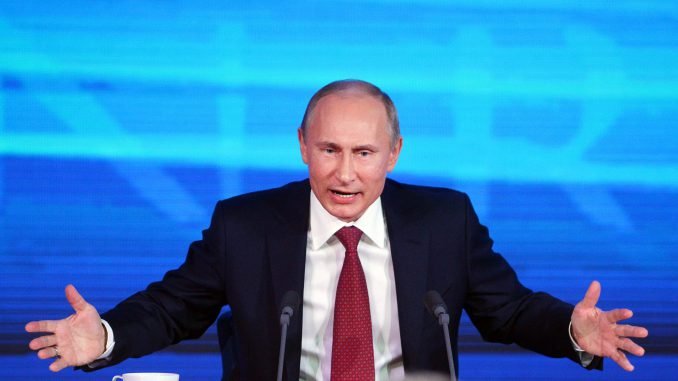
For a start, having asked our weakest ally, Ukraine, to bear the greatest burden of the security crisis, we should hardly be surprised if it splinters under the strain. A war-weary population revolts against the hardships of reform. Russia mops up. Europe is faced with a resentful rump state, plagued by violence, hunger and extremism, a source of crime and refugees.
Invigorated by that success, Russia turns to the Baltic states. It challenges NATO with a series of provocations and stunts, none of which is enough to trigger the alliance’s Article 5, but each of which makes it ever-clearer that when it comes to other threats – crime, disorder, corruption, propaganda, subversion, energy supplies and cyber-security – Estonians, Latvians and Lithuanians are on their own. This pressure saps public morale and forces a change of government in one of the three countries, helped by agents of influence deeply embedded in politics and state agencies.
NATO is perplexed at this. The new government in (for example) Latvia has come to power constitutionally. What is the alliance supposed to do? Invade?
In any case, nothing much seems to happen as a result. Unlike in 1940, the Kremlin does not demand military bases, or stage plebiscites demanding annexation. A few prominent Atlanticists are removed from intelligence, security, law-enforcement and defence positions. The media becomes more docile. Some people emigrate. Laws on language and citizenship change.
The real change is elsewhere. Symbolic defeat leaves NATO’s credibility in shreds. Russia does not need to win outright in the Baltics. It merely needs to show that multilateral security is failing. It drives the point home by putting its nuclear forces on alert, and conducting repeated and ostentatious drills involving the deployment of battlefield nuclear weapons. European governments, facing economic difficulty and political chaos (perhaps involving Greek or British exit from the European Union), with shrivelled defence budgets and a sceptical public, are in no state to counter Russia’s moves. The crucial point comes when American policymakers make it clear that they will not risk World War Three to defend a Europe that is unwilling to defend itself.
At this point European governments scramble to do their own deals with Russia. The terms on offer are seemingly generous: long-term gas contracts at preferential rates, instead of the rule of the discredited EU; guarantees for foreign investors; continuing financial flows, based on new rules about privacy; close cooperation on security, especially against terrorism. In return Russia asks only for a guarantee of non-interference in its internal affairs, including the extradition of people it counts as “extremists” in the West (the lucky ones hurry to America).
Certainly, these deals made separately are much worse than Europeans could have achieved, had they acted together. A bloc of 500 million people with GDP of USD 20 trillion would naturally be at an advantage in talks with a country of 140 million people and economy of USD 2 trillion. But such multilateral way of negotiating has irreparably failed. In this new bilateral age Russia is a strong country. It continues to speak politely with big countries, but throws its weight around against the small ones.
Under a mutual agreement, America withdraws its remaining forces from Europe. NATO’s existence is rudimentary – the bloc turns into little more than a forum for security cooperation with Russia. Such is the world in which we lose: it is not inevitable, but closer than we think.
—-
Edward Lucas is senior vice-president at the Center For European Policy Analysis

Be the first to comment